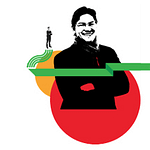I love a list, don’t you? I have one in front of me right now. It has all the things on it that I need to do. I mean, I haven’t actually done any of them, but the fact that I have a list makes me feel a bit organised and like I’m in control. Write an article about what happened when Purple Monster hosted an event for the Change Management Institute recently at Chelysmore House in Coventry. That’s item four. I’ll do that in a minute… It will have to be engaging, so that anyone who reads it will get a flavour of what it was like to be there. Hmmm. I wonder how they will respond to what I write? I don’t know who will be reading it. What if they don’t like it?
Now then. My computer. If I’m going to write this article I will need that set up right. I’ve just got new fibre-optic broadband. I’d better make sure that that is all set-up properly. Then there’s my phone. I’ll need to connect that too. OK. What would make people interested in this article?
I wonder if I should upgrade to Windows 10? Perhaps I could add that to my list.
 That. In a nutshell, was the thrust of the session that we ran. When faced with change the focus is often on the things that are complicated, but easy. The process can be refined and tinkered with. The technology is a source of endless fascination – what can it do, how can it be applied, what potential it has. But the people… Ah, yes. The people. They are difficult. They are unpredictable. They might not like the process and the technology, and they might challenge the cosy, ordered little world of Change For The Greater Good. Perhaps if we explain the process and the technology again they will understand…
That. In a nutshell, was the thrust of the session that we ran. When faced with change the focus is often on the things that are complicated, but easy. The process can be refined and tinkered with. The technology is a source of endless fascination – what can it do, how can it be applied, what potential it has. But the people… Ah, yes. The people. They are difficult. They are unpredictable. They might not like the process and the technology, and they might challenge the cosy, ordered little world of Change For The Greater Good. Perhaps if we explain the process and the technology again they will understand…
The challenge that was offered was to go towards the difficult stuff and not avoid it or explain it away. The discussion centred around the emotional reasons why people might find it hard to accept change and how often the easy option is to explain, in every increasing levels of detail, exactly what the change is and what benefits it will bring. One of the core beliefs at Purple Monster is that information is not engagement, so to get round this we asked people for their experience of “sticky stories” – small moments where something simple, unexpected or emotional told a story that encapsulated what needed to be done at that moment, without recourse to pages and pages of PowerPoint instruction.
 This is a core skill for anyone that works in change: the ability to make the right intervention at the right time in the right way. To illustrate this, we presented the work of Joseph Campbell – The Hero’s Journey. Campbell recognised that all stories are stories of change and transformation, and in these there are recognisable steps that are common across times and cultures, and, significantly for people who work guiding others through change, there are three archetypes that they often play: The Herald, who invites people to change the way they act, The Shapeshifter, who invites them to change the way that they think, and The Trickster who comes with no answers, only challenges to how things are. The evening closed with a good discussion around how people can play these roles mindfully, with full awareness of the consequences their actions have.
This is a core skill for anyone that works in change: the ability to make the right intervention at the right time in the right way. To illustrate this, we presented the work of Joseph Campbell – The Hero’s Journey. Campbell recognised that all stories are stories of change and transformation, and in these there are recognisable steps that are common across times and cultures, and, significantly for people who work guiding others through change, there are three archetypes that they often play: The Herald, who invites people to change the way they act, The Shapeshifter, who invites them to change the way that they think, and The Trickster who comes with no answers, only challenges to how things are. The evening closed with a good discussion around how people can play these roles mindfully, with full awareness of the consequences their actions have.
If only someone could create a process and design some technology to do that without people getting involved. I might put that on my list…
With thanks to the following for making this event happen:
- The Change Management Institute
- Purple Monster for designing and facilitating the session




